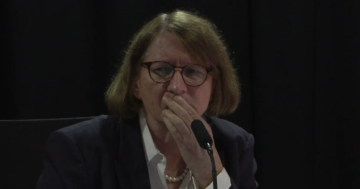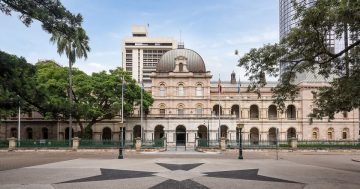
The CCC review report was considered by Cabinet on Monday (27 May). Photo: Scotto72.
The Queensland Government has committed to all 16 recommendations of a review into its Crime and Corruption Commission (CCC), which was sparked by challenges from a former deputy premier and public trustee.
Former Chief Justice of Queensland Catherine Holmes delivered the almost 500-page report on the CCC’s reporting functions, following her appointment to lead the three-month review by Attorney-General Yvette D’Ath.
In accepting Ms Holmes’ recommendations, the Attorney-General said legislation will be introduced allowing the CCC to publicly report and make public statements in relation to its corruption investigations, as well as on the performance of its corruption prevention function.
The new reporting model will include elected officials if they’re the subject of a report, even if corruption allegations are not proven, as long as the details are purely factual and in the public interest.
However these reports must not identify the person, unless reasonably necessary or they wish to be identified, or include critical commentary or opinions or recommendations based on their conduct.
This stipulation includes reports on investigations revealing systemic corruption, unless the individual has been named in a public hearing or could be named in a serious corrupt conduct report.
The legislation will also retrospectively apply to the CCC’s previous reports and statements and enable it to table its reports directly through the Speaker of Queensland’s parliament and/or separately publish said reports.
The Parliamentary Crime and Corruption Committee will retain its power to direct the CCC to table reports.
The CCC’s origins date back to the Fitzgerald Inquiry Report of 1989, but it was officially established in 2001.
Since then, it has prepared and published reports, along with other relevant public statements, in relation to individual corruption matters. Its authority to do so had not been challenged or tested before a court until recently.
Former state public trustee Peter Carne took legal action against the CCC for attempting to make an investigation on him public through Queensland’s parliament. The initial case failed before the state’s Supreme Court, but the decision was overturned by the Court of Appeal.
When the CCC brought the case before the High Court it was dismissed – the court citing in its judgement that “while the CCC could report generally in relation to the performance of its corruption functions, it does not have (and never has had) the ability to publicly report on individual corruption matters”.
This decision led to the CCC Chairperson declaring they would seek urgent legislative amendments, so the commission’s ability to report on corruption matters would not come into question again. In response, the Queensland Government initiated this review to ensure any legislative amendments would strike a balance between the CCC’s views and its own concerns that published reports raise complex legal, ethical and human rights issues.
In her report, Ms Holmes recommends the CCC should have a general discretion to make public statements, “but only for limited purposes”.
“For example, to inform the public that a referral is not warranted (if the matter is already in the public domain and the subject of the investigation agrees).”
Outside of this, she said no person should be named “unless reasonably necessary”. This recommendation includes the actions of people who were not the subject of the investigation.
Ms Holmes said procedural fairness requirements should be strengthened and apply to decisions to prepare, table or otherwise publish reports or public statements on corruption investigations.
She added that a person affected by reports should be given a minimum of 30 days to respond to the initial draft, and a further two weeks for the final version that will be tabled or otherwise published.
Attorney-General D’Ath thanked Ms Holmes for considering all sides of the issue of public reporting, and for leaving no stone unturned in delivering her recommendations.
“There is a clear public interest in the CCC being able to report on corruption matters,” said Ms D’Ath. “This is vital for the transparency and accountability of our democratic institutions.
“Public reporting cannot occur at the expense of due process and proper regard to individual rights. Respect for these values is equally important.”











